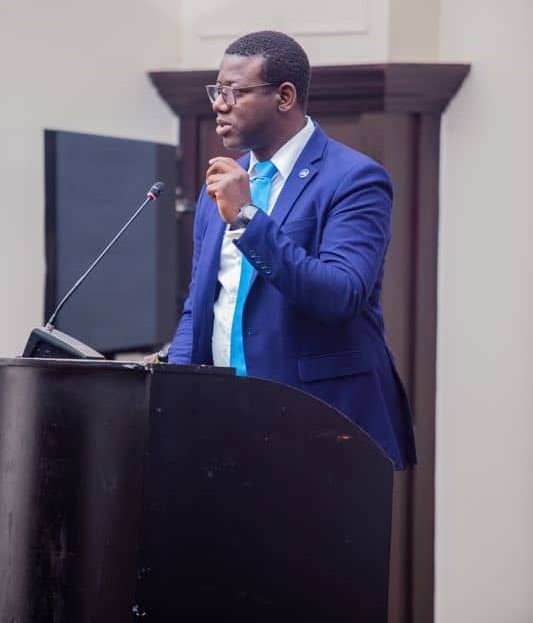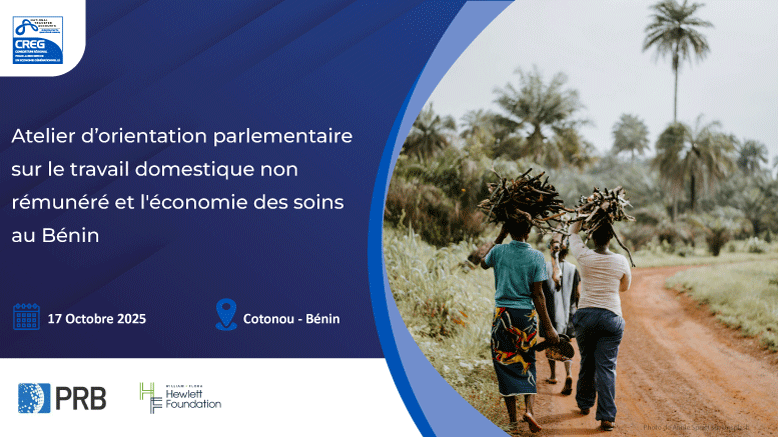Mid-Term Workshop on the Care Economy in Africa: The CREG Shares Its Results

From October 6 to 9, 2025, a mid-term workshop was held in Johannesburg, South Africa, as part of the initiative “Scaling Up Care Innovations in Africa.”
This event brought together nineteen African projects committed to recognizing, valuing, and integrating care work into public policies.
Over four days, participants engaged in panel discussions, parallel sessions, exhibitions, and group work.
The discussions focused on:
• Recognizing care work as a pillar of social well-being,
• Developing methods to measure and value it,
• Designing strategies to place it at the center of political and economic priorities.
🎯 The Contribution of the CREG and Its Partners
The CREG, through the CREG–PRB–AADEF coalition, together with its partners in Benin and ACS Togo, presented key findings and mid-term achievements from the project:
“Supporting Evidence-Based Policymaking on Unpaid Domestic Work for Generational Equity in Togo and Benin.”
🔍 Key Findings Presented
• 📊 30% of the invisible wealth generated by unpaid domestic work escapes National Accounts but could be valued through appropriate policies.
• 📉 The blind spot of GDP is now measurable thanks to the integration of the care economy through Time Use Surveys and National Transfer and Time Accounts methodologies.
• 👩👧 These tools highlight the central role of women in producing social well-being — a contribution still largely unrecognized.
• 🛠️ Targeted social policies for the recognition of unpaid domestic work are possible when decision-makers are involved in co-building evidence.
• 💰 Low budget allocations (less than 5%) in the health and care economy sectors limit the implementation of ambitious policies.
⚙️ Identified Areas for Improvement
In its presentation, the CREG also identified several key levers to enhance the project’s impact, including:
• Strengthening political ownership of the care economy by training parliamentarians,
• Co-developing a shared national roadmap between Togo and Benin to guide actions,
• Expanding capacity-building efforts among key stakeholders.
These recommendations aim to consolidate the momentum achieved so far and promote more effective and inclusive public policy implementation.
In addition, on the sidelines of the mid-term workshop, a fifth day was dedicated to the organization of the W20, in which the CREG participated.
This meeting featured panel discussions and experience-sharing sessions on integrating gender equality and the care economy into public policies in Latin America and Africa.
Overall, the workshop marked a major milestone toward strengthening a sustainable community of practice around the care economy across the African continent.

